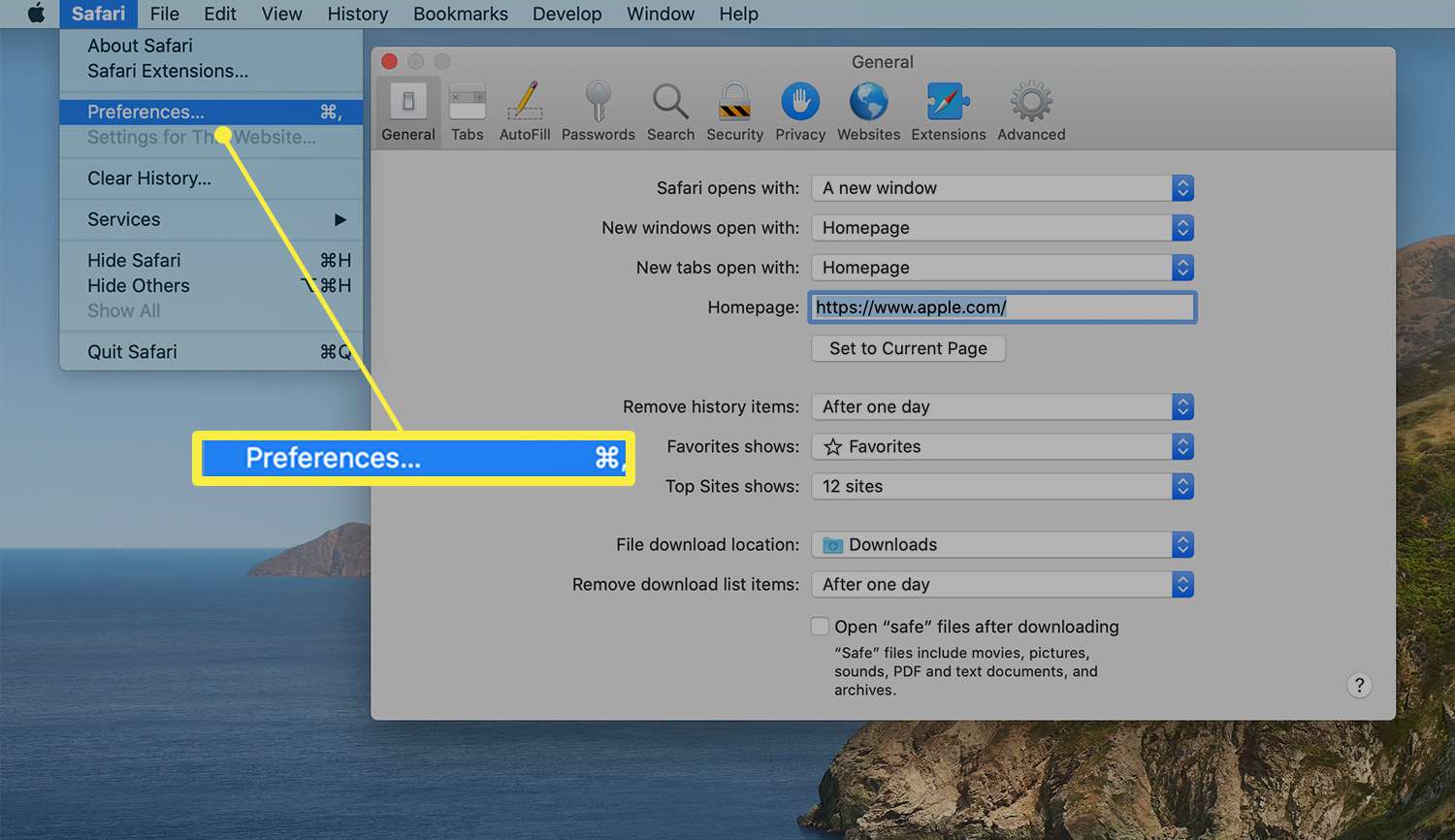Introduction
Safari, Apple's widely used web browser, is known for its sleek interface and robust privacy features. However, like most web browsers, Safari utilizes cookies to enhance user experience and gather valuable data. While cookies can be beneficial, they also raise concerns about privacy and security. In this article, we will delve into the world of cookies and explore the steps to turn off cookies in Safari.
Cookies are small pieces of data stored on your device by websites you visit. They serve various purposes, such as remembering login credentials, tracking user preferences, and providing personalized content. While this can streamline your browsing experience, it also means that your online activities are being monitored and recorded.
Understanding the implications of cookies is crucial for maintaining control over your online privacy. By gaining insights into how cookies function and their potential impact, you can make informed decisions about managing them in your web browser. This article aims to empower you with the knowledge and tools to take charge of your online privacy while using Safari.
Let's embark on a journey to uncover the intricacies of cookies and learn how to wield the power to disable them in Safari. Whether you're concerned about targeted advertising, data tracking, or simply prefer a more private browsing experience, understanding how to turn off cookies in Safari is a valuable skill in today's digital landscape. So, let's dive into the world of cookies and Safari's settings to take control of your online privacy.
Understanding Cookies
Cookies, in the context of web browsing, are small pieces of data that websites store on your device. These data files serve various purposes, such as remembering login credentials, tracking user preferences, and providing personalized content. When you visit a website, it sends a cookie to your browser, which then stores it on your device. This allows the website to recognize you, remember your preferences, and provide a tailored browsing experience.
There are different types of cookies, each serving a specific function. Session cookies, for example, are temporary and are deleted when you close your browser. They are used to track your activities during a single browsing session and are essential for certain website functionalities, such as online shopping carts. Persistent cookies, on the other hand, remain on your device for a specified period, even after you close your browser. These cookies can store information such as login credentials, language preferences, and site settings, allowing for a more personalized user experience during subsequent visits.
While cookies can enhance user experience by enabling features like automatic logins and personalized content recommendations, they also raise concerns about privacy and security. One of the primary concerns is related to tracking cookies, which are used to monitor users' online activities across different websites. This tracking enables advertisers to create targeted ads based on users' browsing behavior, leading to privacy implications and potential data misuse.
Moreover, third-party cookies, which are set by domains other than the one you are visiting, can also raise privacy concerns. These cookies are often used for cross-site tracking, allowing companies to gather extensive data about users' online behavior. This practice has sparked debates about user privacy and prompted web browsers to introduce measures to limit or block third-party cookies by default.
Understanding the implications of cookies is crucial for maintaining control over your online privacy. By being aware of how cookies function and their potential impact, users can make informed decisions about managing them in their web browsers. This knowledge empowers individuals to take proactive steps to protect their privacy and ensure a more secure browsing experience.
In the next section, we will explore the reasons why users may choose to turn off cookies in Safari, shedding light on the various considerations that influence this decision. Understanding these factors will provide valuable insights into the importance of managing cookies and taking control of one's online privacy.
Why Turn Off Cookies in Safari
Turning off cookies in Safari can be a strategic decision driven by various factors that influence users' browsing experience and privacy concerns. Here are compelling reasons why individuals may choose to disable cookies in Safari:
-
Enhanced Privacy Protection: By turning off cookies in Safari, users can mitigate the risk of their online activities being tracked and monitored. This proactive measure aligns with the growing emphasis on digital privacy and data protection. With the prevalence of online tracking and targeted advertising, disabling cookies can serve as a fundamental step in safeguarding personal information and maintaining a higher level of privacy while browsing the web.
-
Reduced Targeted Advertising: Cookies play a pivotal role in enabling targeted advertising, where user behavior and preferences are tracked to deliver personalized ads. However, many users find this practice intrusive and may opt to disable cookies to minimize the impact of targeted advertising. By doing so, individuals can reduce the frequency of personalized ads and mitigate concerns related to the extensive tracking of their online behavior.
-
Prevention of Cross-Site Tracking: Third-party cookies, often utilized for cross-site tracking, can raise significant privacy concerns. These cookies enable entities to gather extensive data about users' browsing activities across different websites. By turning off cookies in Safari, users can limit the effectiveness of cross-site tracking, thereby reducing the potential for unauthorized data collection and enhancing their online privacy.
-
Control Over Personal Data: Disabling cookies in Safari empowers users to exert greater control over their personal data. With the increasing focus on data ownership and consent, individuals may choose to turn off cookies to assert their autonomy over the information collected during their online interactions. This proactive approach aligns with the principles of data sovereignty and user empowerment in the digital realm.
-
Improved Browser Performance: In some cases, disabling cookies can lead to improved browser performance. By reducing the volume of data stored and exchanged during browsing sessions, users may experience faster loading times and a more streamlined browsing experience. This performance enhancement can be particularly beneficial for individuals seeking optimized browser functionality without compromising their privacy preferences.
-
Mitigation of Security Risks: While cookies primarily serve benign purposes, they can also pose security risks if exploited by malicious entities. By turning off cookies in Safari, users can mitigate the potential vulnerabilities associated with certain types of cookies, thereby enhancing their overall browsing security and reducing the likelihood of unauthorized access to sensitive information.
By considering these factors, individuals can make informed decisions about managing cookies in Safari to align with their privacy preferences and browsing requirements. Whether driven by privacy concerns, targeted advertising aversion, or a desire for improved browsing performance, the choice to turn off cookies in Safari reflects users' proactive engagement in shaping their online experiences and safeguarding their digital privacy.
How to Turn Off Cookies in Safari
Turning off cookies in Safari is a straightforward process that empowers users to take control of their online privacy and browsing experience. By adjusting the browser settings, individuals can disable cookies and mitigate concerns related to data tracking, targeted advertising, and privacy implications. Here's a step-by-step guide to turning off cookies in Safari:
-
Access Safari Preferences: Begin by opening the Safari browser on your Mac or iOS device. In the top menu bar, click on "Safari" and select "Preferences" from the dropdown menu. This will open the Safari Preferences window, where you can customize various browser settings.
-
Navigate to Privacy Settings: Within the Safari Preferences window, navigate to the "Privacy" tab. This section contains settings related to website tracking, cookies, and other privacy features. Click on the "Privacy" tab to access the privacy settings for Safari.
-
Manage Website Data: In the Privacy tab, you will find the option to "Manage Website Data." Click on this button to view and manage the stored data, including cookies, for websites you have visited. This provides insight into the specific cookies that have been stored on your device.
-
Block All Cookies: To disable cookies entirely, select the option to "Block all cookies." This setting prevents websites from storing any cookies on your device, thereby limiting tracking and data collection. By blocking all cookies, you can enhance your privacy and reduce the impact of targeted advertising and cross-site tracking.
-
Customize Cookie Settings: Alternatively, you can choose to customize cookie settings based on your preferences. Safari offers the option to block third-party cookies, which can help mitigate privacy concerns associated with cross-site tracking while allowing essential cookies for site functionality.
-
Manage Website-Specific Settings: For added control, Safari allows users to manage website-specific cookie settings. You can view and modify the cookie preferences for individual websites, enabling a tailored approach to cookie management based on specific browsing habits and privacy considerations.
-
Consider Privacy Report: Safari's Privacy Report feature provides valuable insights into the trackers that have been blocked while browsing. By accessing the Privacy Report, users can gain visibility into the impact of cookie settings and track the effectiveness of privacy measures implemented in Safari.
By following these steps, users can effectively turn off cookies in Safari, aligning their browsing experience with their privacy preferences and data protection goals. Whether opting to block all cookies or customize settings based on specific needs, Safari offers a range of privacy features to empower users in managing their online privacy effectively. Taking control of cookie settings in Safari reflects a proactive approach to safeguarding personal data and maintaining a more private and secure browsing experience.
Conclusion
In conclusion, the ability to turn off cookies in Safari empowers users to assert control over their online privacy and browsing experience. By understanding the implications of cookies, users can make informed decisions about managing their digital footprint and mitigating concerns related to data tracking, targeted advertising, and privacy risks. Safari's robust privacy features, coupled with the option to disable cookies, provide individuals with the tools to align their browsing preferences with their privacy objectives.
The decision to turn off cookies in Safari is driven by a myriad of factors, including the desire for enhanced privacy protection, the aversion to targeted advertising, and the need to mitigate security risks associated with certain types of cookies. By taking proactive steps to disable cookies, users can curtail the extent of online tracking, reduce the impact of targeted advertising, and assert greater control over their personal data. This deliberate approach reflects a commitment to safeguarding digital privacy and maintaining a more secure online environment.
Furthermore, the process of turning off cookies in Safari is straightforward and customizable, allowing users to tailor their privacy settings based on their specific preferences and browsing requirements. Whether opting to block all cookies or customize settings to allow essential cookies while blocking third-party tracking, Safari offers a range of options to accommodate diverse privacy needs. The ability to manage website-specific cookie settings further enhances users' control over their online interactions, enabling a personalized approach to cookie management.
By leveraging Safari's privacy features and the option to disable cookies, users can navigate the digital landscape with greater confidence, knowing that they have taken proactive measures to protect their online privacy. The evolving focus on data protection and privacy rights underscores the significance of empowering individuals to make informed choices about their online privacy settings. Turning off cookies in Safari represents a proactive step towards achieving a more private, secure, and personalized browsing experience tailored to individual preferences.
In essence, the ability to turn off cookies in Safari is not merely a technical feature but a manifestation of users' autonomy and agency in shaping their digital interactions. It embodies the principles of informed consent, data sovereignty, and user empowerment, reflecting a collective commitment to fostering a more privacy-centric online ecosystem. As individuals continue to prioritize their digital privacy, the option to disable cookies in Safari stands as a pivotal tool in realizing these aspirations and cultivating a more secure and personalized online experience.

























